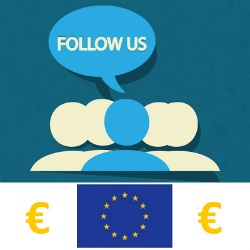Completing Europe's Economic and Monetary Union is a huge challenge, above all at this particularly delicate time as the detailed program faces strong political as well as economic headwinds. But inaction can’t be blamed on lack of Presidents in Europe - we have lots of them: European Commission (EC) President, Jean-Claude Juncker, President of the Euro Summit, Donald Tusk, President of the Eurogroup, Jeroen Dijsselbloem, President of the European Central Bank, Mario Draghi, and President of the European Parliament, Martin Schulz. Earlier this year, the 5Ps got together for some quality time, culminating with the release of the "Completing Europe's Economic and Monetary Union" report. Coming after numerous reports over many years with similar objectives, this latest missive is grandly dubbed the "Five Presidents Report".
 So what is different this time? Most obvious, is the level of Presidential cohesion, driven by the current imperatives. If the road map is not defined, embarked upon and completed rapidly, the political situation will deteriorate, with ever growing anti-EU sentiment in Europe and a struggling economy. Overall EU GDP growth for 2015 is expected to be 1.7% but tellingly, that of the Eurozone, 0.5% less at 1.2%. European Presidents are openly wondering whether the EU can survive any more severe political or economic crisis.
So what is different this time? Most obvious, is the level of Presidential cohesion, driven by the current imperatives. If the road map is not defined, embarked upon and completed rapidly, the political situation will deteriorate, with ever growing anti-EU sentiment in Europe and a struggling economy. Overall EU GDP growth for 2015 is expected to be 1.7% but tellingly, that of the Eurozone, 0.5% less at 1.2%. European Presidents are openly wondering whether the EU can survive any more severe political or economic crisis.
The Completing Europe's Economic and Monetary Union report, unsurprisingly focuses on the crisis-ridden Euro area, as "countries that share a currency face specific common challenges, interests and responsibilities", before expanding to the ill-functioning Single Market in goods and services, where “digital, energy and capital markets should be part of a stronger boost towards economic union, as well as more jobs and higher growth". The introduction lays out the ambitious framework, and stresses the lack of alternatives, in what Juncker has called the "last chance Commission". The EC must succeed in this program or the whole EU project risks failing. The table of contents sums up the program:
- The Nature of a Deep, Genuine and Fair Economic and Monetary Union
- Towards Economic Union - Convergence, Prosperity and Social Cohesion
- Towards Financial Union - Integrated Finance for an Integrated Economy
- Towards Fiscal Union - an Integrated Framework for Sound and Integrated Fiscal Policies
- Democratic Accountability, Legitimacy and Institutional Strengthening Click here for a full copy of the report.
There are four sections in the report directly tackling the challenges of; economic, financial, fiscal and democratic political union. Each section is structured into three consecutive stages of proposed reform. The first stage started on 1 July 2015, so we are in fact already launched on this road and the timetable calls for completion within two years, by 30 June 2017. "Deepening by Doing" is a pragmatic reality check; focus on doing what we can to build a more solid architecture, but recognising that EU institutions and Member States build on existing instruments and make the best possible use of the existing Treaties. Political realities dictate and upcoming EU elections means the timetable is too tight and treaty change is not possible until after mid-2017.
The second stage is more ambitious, expect a white paper in Q1.2017, to kick this stage off, when “concrete measures of a more far-reaching nature would be agreed to complete EMU’s economic and institutional architecture” and completing the European Monetary Union (EMU) is the #1 priority. The last stage, slated at the latest by 2025, envisages that Europe "is a stable and prosperous place for all citizens of the EU Member States".
If anyone reading the report was unaware, and to ensure a level of respect for a somewhat tattered EU at this time, the report wants you to know that; "The EU is the world’s largest trading block and the world’s largest trader of manufactured goods and services. It has achieved this by acting with one voice on the global stage, rather than with 28 separate trade strategies". So what does this mean going forward? Well try this: "The large economic and financial size and the existence of a single monetary and exchange rate policy for most of its members make the EU policy decisions and economic developments increasingly relevant for the world economy". That is the key. We lack institutional unification and the economic growth to hold our number 1 place in the economic world. Over the coming years, Europe will address the economic, financial, fiscal, and political issues and the institutions necessary to guarantee a rock-solid EMU. If this is coupled with an economic recovery, at a world level, of which Europe has its share, forecasts tell us EU GDP for 2016 is 2.1% and 2017 is 2.5%, then indeed we can expect to see a stronger economic union with higher GDP growth.

